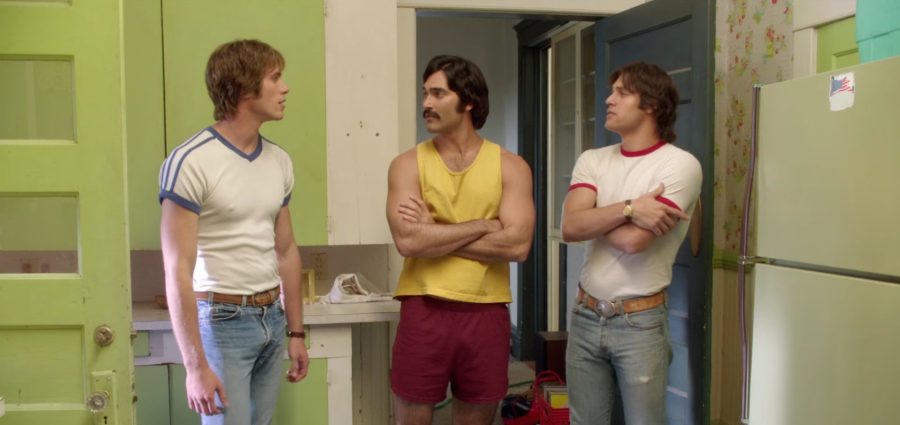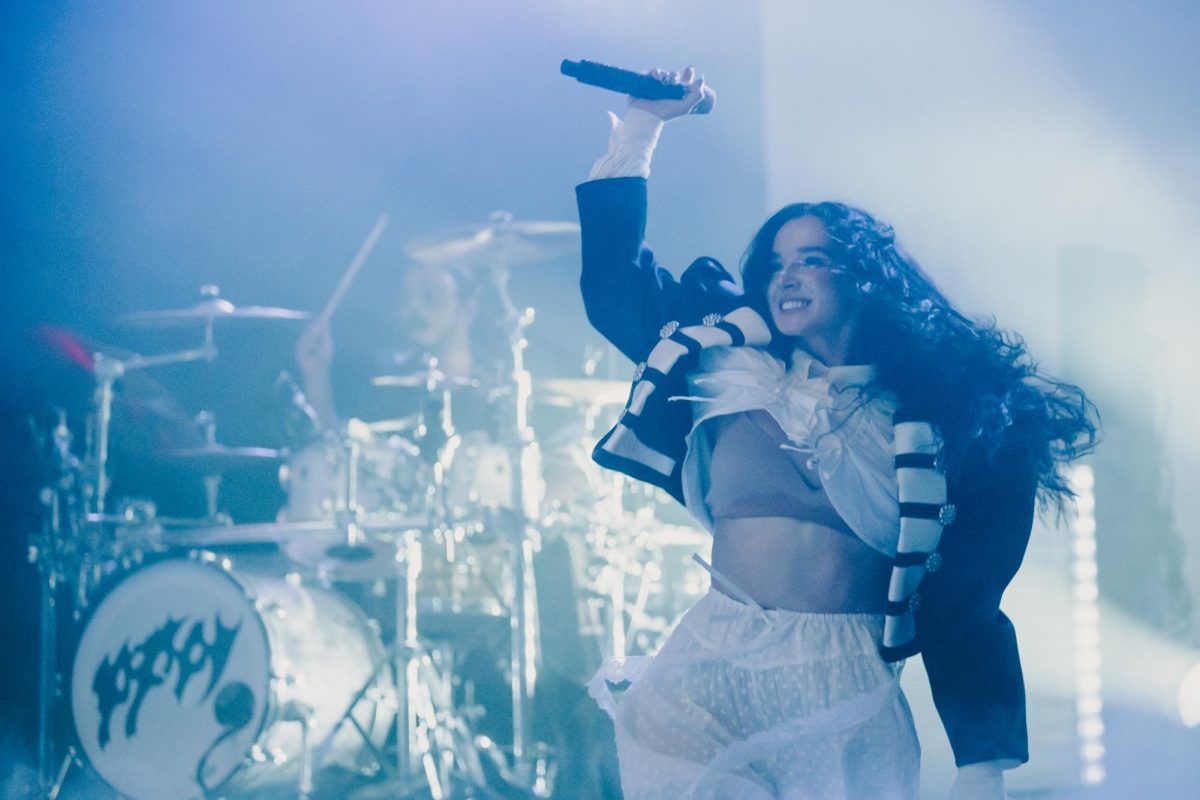Time has always been a factor that permeates Richard Linklater’s filmography, both as a major theme and as a filmmaking technique. The latter has rocketed him to critical success, with “Boyhood” and his “Before” trilogy using the natural aging of actors to elevate their narratives.
Linklater’s latest film, “Everybody Wants Some!!” is a bit of a return to his earlier work, eschewing such techniques while also meaning to act as a “spiritual sequel” to his popular 1993 coming-of-age flick “Dazed and Confused.”
Like most of Linklater’s films, it unabashedly plays into his own experiences. It’s decidedly white, middle-class and Texan. Which is by no means a criticism, given how effortlessly Linklater draws universal themes and conclusions from his personal experiences. “Everybody Wants Some!!” may be replete with baseball and binge drinking, but at its heart, it’s a perfect slice-of-life look at the changes students undergo through their transition into college, and a nostalgic look into the early 1980s.
The UCSD Guardian was lucky enough to share reminiscence with three of the young stars of the film. Blake Jenner plays Jake, the protagonist of the film and the newest addition to Texas Southern University’s baseball team, swept into a jovial yet competitive landscape of sports, girls, partying and looming classes. Tyler Hoechlin portrays Glen McReynolds, the baseball team’s captain, torn between being a friend and stern mentor towards Jake. Lastly, Will Brittain plays Billy Autrey, the only member of the team in a long-distance relationship, which brings along a whole different set of challenges.
Q: Since this film is about college in the ‘80s, how do you think college students in this day and age will relate to it?
Blake: I would say that all the external things, like the music and the clothes and the haircuts, that all changes with time. But growing up and figuring out who you are and figuring out your niche in a group, that all stays the same.
Will: It’s just like with every new batch of college students: you have a bunch of people questioning the world and seeing it in a new way. That’s the beauty of college. You’re introduced to the world on a larger scale, with this safety net of academics and structure, and this allows you to raise those bigger questions without fear of not being able to pay your bills. That’s what these guys are doing, they’re living in this bubble of their glory days, and able to really examine the world around them.
Q: The movie revels in the music and fashion of the late ‘70s, early ‘80s. What were your favorite parts of bringing this time back to life?
Will: I would say the social aspect. It was great being in the disco club and not having any directions for any of the people in the background to be like, “okay so at this point, be on your cell phone, not paying attention to anything around you,” which seems to be happening all the time now. So I just loved living in that world for a little bit. It was nice just to have music going and people actually dancing, socializing, having a good time.
Tyler: In the 1980s, everything wasn’t so PC, and I mean that in the best way possible. People weren’t always looking to take offense. It was sort of a time period where everybody was enjoying themselves and the people around them. The whole STD crisis hadn’t come out yet. From what Rick has told us and from what we’ve seen, it was a time period where people were just a lot more easygoing.
Blake: What I pulled from this movie is just to … live in the now. With everything around us, all the traffic, and the mindset we get approached with day to day, with Twitter and social media and how connected everybody is, you forget about the moment and what’s right in front of you.
Q: This seems like a really fun movie to make. Is this how it was in reality, or were there any tough days on set or tough scenes to shoot?
Will: Not one. Not any of us can recall a bad day, or even a bad hour on set. So I think it’s pretty rare to have that, not even being able to have a single bad day to talk about for this whole shoot.
Tyler: It was all just fun. That’s a feeling that comes down from Richard Linklater, and he takes that feeling and pushes it down to the entire set. When you’re hanging out on this set, it was just so laid-back all the time, that you can’t even question it, you’re just having a good time.
Q: My favorite part of the movie, on top of your performances, was the hair and the clothes. Did that allow you guys to escape into that period more easily?
Tyler: The first time I put on the clothes for McReynolds, even just walking out from the production office … I literally felt myself walking differently, I think I had a different pace and stride. It’s just the weirdest thing how you can change just a little bit of your physical exterior and have this sense that people aren’t seeing you so much as that they are seeing the character. It’s a really bizarre but freeing feeling, it makes you feel a little safer to play and push the boundaries.
Q: Nostalgia is a huge theme throughout Linklater’s work. How do you think this film fits into his anthology of work, in terms of that nostalgic theme?
Blake: Looking at Rick’s films, this is sort of the side of Rick that’s always been an athlete, and likes to hang back and have a good time. It presents that side of him … But just like everything he does, it’s streaked with these notes of deep philosophical reflections on life. That’s the kind of guy he is, and he puts that in all his work. So it’s really nice with this movie to see that through an athlete’s perspective.
Q: What was your favorite or most memorable scene?
Blake: Every single scene was a blast to shoot. But if I had to pick one, I really dug shooting that punk rock scene…For my character, that was a checkpoint in his journey and calling out everything he’d been through. It’s a point where he can take a step back and think “who am I, really?”
Tyler: The group of days where we were out on the baseball field, because that felt so much like home to me. I love being back out on the field with the guys…it’s reminiscent of those days when you were not really talking about anything important but just talking. Those were some of our first days on set and gave a really great tone for the rest of the shoot.
Q: What were some of the differences you noticed between college life in 1980 and now?
Tyler: I think there are similarities as far as the experience goes, I remember going out and my parents driving all my stuff out, and i was driving in the other car, and I got there and unloaded everything and once they left, there was kind of that feeling of oh wow, this is really happening and I’m on my own. That initial sense of freedom, that’s definitely something which I think anybody can identify with, when they see this movie, and they see Jake pulling up and going through that and meeting the guys for the first time.
For me, I played college ball so it was kind of like going back and reliving the glory days, but actually a little bit more fun this time. When I was actually playing [baseball] it was a little more focused and I had to actually show up for practice and perform. This time, when we showed up to the parties, it wasn’t like “oh, coach is gonna know if we have too much fun.” Here, our “coach” is directing us and telling us to have more fun, so I guess we get to.
Will: I was a theater major so a lot of my experience reflects more what you see at the end of the film, where these guys get to this crazy theater party. I was one of these hybrid guys who was kind of an athlete but also into the performing arts. There was definitely a lot of partying but you didn’t have as great a home environment in real life because I was living in tiny little shacks and single dorms, trying to get by. But there definitely was that same vibe to me at the beginning of college, coming into this thing with this innocence, getting baptized into this world of cultures and different kinds of people and music.
Questions asked by CSU San Marcos, Drexel University, UCSD Guardian, University of Kansas and the University of Michigan, respectively. All questions compiled and transcribed by the UCSD Guardian.














